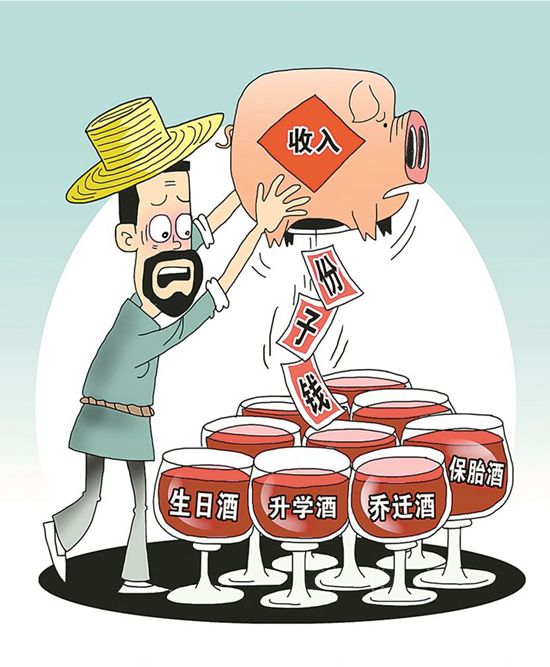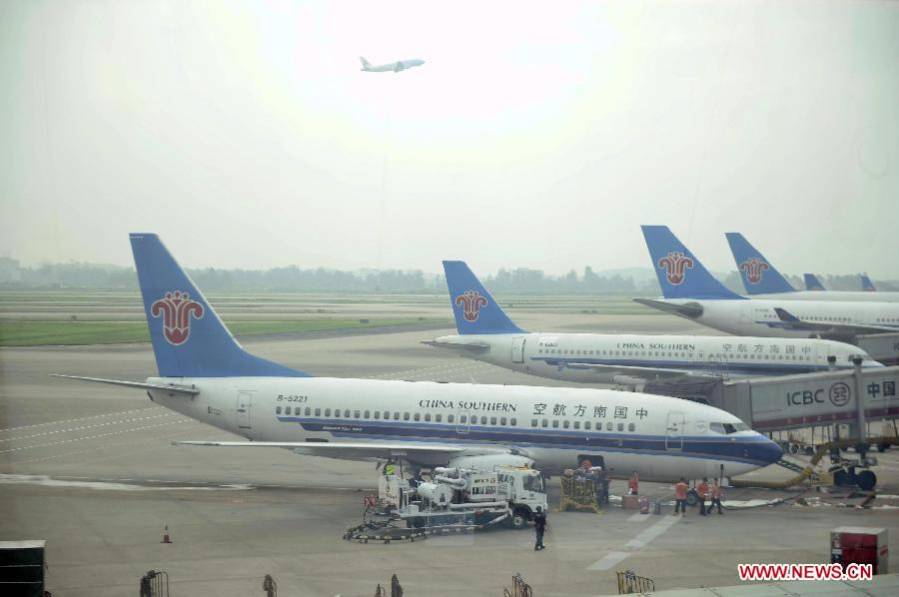The Chinese tradition of giving monetary gifts on wedding or funeral banquets has been around for centuries, but the hosting of various banquets aiming to make money has become an unbearable burden especially in rural areas.
 |
|
Hosting banquets under different pretexts aiming to make money has become an unbearable burden especially in rural areas. [Photo: Xinhua]
|
During important occasions like weddings and funerals, the family would host open-air banquets for friends and relatives, and those who are invited will pay an amount of money, depending on closeness, as a gesture of affection and care.
“I spent over 40,000 yuan (US$ 5,824) last year on various banquets,” said a winery boss surnamed Yang in a small town in central China’s Hunan Province. “This way of returning other’s favor is really costly.”
In some places, however, banquets are also held for various reasons. Moving into a new house, family members getting enrolled into college and celebrating someone’s birthday are some of the justifiable excuses. And there could be also not-so-justifiable ones like hosting a banquet to “prevent miscarriage” for pregnant women and to “start a new life” after being released from prison.
Relief fund used for monetary gifts
Those banquets could be a huge burden for some people, especially in rural areas.
“The average annual income of a farmer is between 30,000 and 40,000 yuan, and some people are spending half of it to pay for monetary gifts on those occasions,” said Lyu Caifu, a farmer at the Three Gorges Reservoir Region in Chongqing Municipality.
Some low-income families are even drawing on their government allowance for those banquets, he added.
Hosting banquets under different pretexts has grown into a vicious cycle. Understandably, those who have paid could rack their brains to find any excuses for others to return the favor.
Tightened regulatory measures
Many places have rolled out measures to cure the “endemic” disease, with some targeting party and government officials and some the general public as well.
Regulations may vary from region to region but they mostly forbid any banquets except for wedding and funerals and limit the scale as well as attendees of those events.
As for punishment, party cadres are regulated based on party discipline. Some have even been removed from their current posts and expelled from party membership; non-party members were often investigated by the public security department or food and drug regulators. For example, a town in the Three Gorges Reservoir Region stipulated that the violator will be disqualified from enjoying subsistence allowances.
Some places have seen preliminary results. “Much of our burden has been lifted since then,” said Yao Qiong, a self-employed business owner in a small town of Chongqing.
In the past, the average annual amount paid on banquets was over 40,000 yuan, and the number has reduced to only 3,000 yuan after the campaign.
There were also some controversial measures adopted during the campaign. Some cities even banned wedding banquets for second marriages and a declaration needs to be filed ahead of hosting a banquet.
“Local government has the responsibility to curb unhealthy customs, but it should never cross the line,” said Li Ping, a professor at Renmin University of China (RUC). Li advised the local community to formulate its own rules after soliciting opinions from the masses and lead the transformation of old habits in a step by step manner.

